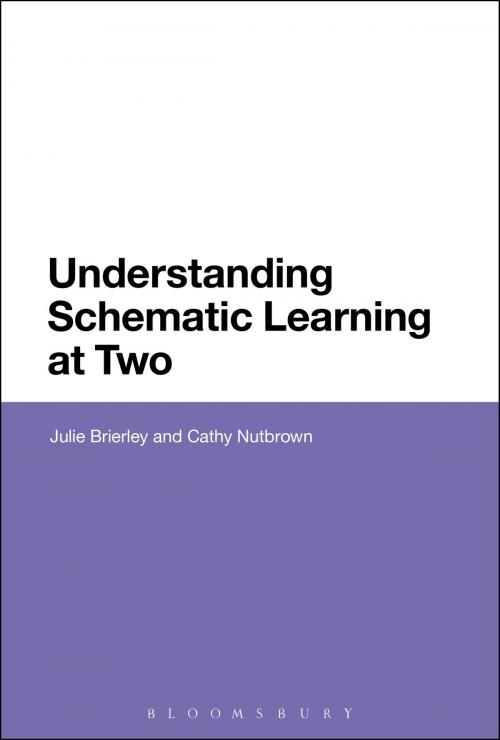Understanding Schematic Learning at Two
Nonfiction, Reference & Language, Education & Teaching, Preschool & Kindergarten, Educational Theory, Educational Psychology| Author: | Dr Julie Brierley, Professor Cathy Nutbrown | ISBN: | 9781474257565 |
| Publisher: | Bloomsbury Publishing | Publication: | March 23, 2017 |
| Imprint: | Bloomsbury Academic | Language: | English |
| Author: | Dr Julie Brierley, Professor Cathy Nutbrown |
| ISBN: | 9781474257565 |
| Publisher: | Bloomsbury Publishing |
| Publication: | March 23, 2017 |
| Imprint: | Bloomsbury Academic |
| Language: | English |
Providing a deeper understanding of how two-year-old children learn, Understanding Schematic Learning at Two highlights how a schematic pedagogy can be used to recognise and support two-year-old children's thinking and understanding of the world around them. Over a 16-week period four children's individual experiences and stories are constructed, providing detailed written and photographic evidence of the unfolding schematic learning journeys of each. Following the children from nursery setting to their home environments, readers gain a greater understanding of how, even at such a young age, children are intrinsically motivated to select resources from the environment to support their schematic pursuits. The book focuses on the importance of an appropriate environment and informed pedagogy to support two-year-old children's schematic explorations and the significant role adults play in developing these.
Beginning by highlighting the important links between learning opportunities, environment and the role of the adults, Brierley and Nutbrown briefly trace the origins of schema and provide an overview of some definitions and characteristics of schemas. This leads to an exploration of how the early years landscape has been influenced through a research, practice and government policy initiatives, concluding that future focus must foregroundhow children learn. Understanding Schematic Learning at Two highlights how recognising and valuing young children's schemas can provide their supportive adults with the opportunity and ability to acknowledge two-year-old children's capability to actively construct and develop an understanding of the world they live in.
Providing a deeper understanding of how two-year-old children learn, Understanding Schematic Learning at Two highlights how a schematic pedagogy can be used to recognise and support two-year-old children's thinking and understanding of the world around them. Over a 16-week period four children's individual experiences and stories are constructed, providing detailed written and photographic evidence of the unfolding schematic learning journeys of each. Following the children from nursery setting to their home environments, readers gain a greater understanding of how, even at such a young age, children are intrinsically motivated to select resources from the environment to support their schematic pursuits. The book focuses on the importance of an appropriate environment and informed pedagogy to support two-year-old children's schematic explorations and the significant role adults play in developing these.
Beginning by highlighting the important links between learning opportunities, environment and the role of the adults, Brierley and Nutbrown briefly trace the origins of schema and provide an overview of some definitions and characteristics of schemas. This leads to an exploration of how the early years landscape has been influenced through a research, practice and government policy initiatives, concluding that future focus must foregroundhow children learn. Understanding Schematic Learning at Two highlights how recognising and valuing young children's schemas can provide their supportive adults with the opportunity and ability to acknowledge two-year-old children's capability to actively construct and develop an understanding of the world they live in.















